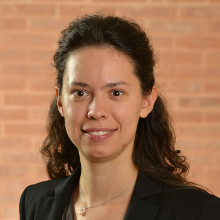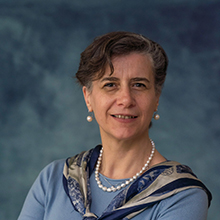
Mission
Ca’ Foscari Competency Centre (CFCC) does research, training and consulting activities in the area concerning the development and assessment of behavioral competencies (soft skills).
The main aim of the Ca’ Foscari Competency Centre is to improve the performance and the employability of people through the development of their competency portfolio.
The Centre enhances and develops the most advanced international experiences in academia related to transversal skills and provides new research paths and experimentation focusing on implementing an optimal encounter between supply and demand on the labor market.
The Competency Centre was created in 2012 on the basis of a tradition of research on transversal skills undertaken by Ca’ Foscari in the 1990s, which was at the time the first Italian institution to investigate this field.
It is an internationally recognized centre for research and implementation of competency-based methodologies.
It collaborates systematically with international scholars who opened the research strand on behavioral competencies and contributed to their analysis in the educational and professional contexts.
Researchers of the Competency Centre work primarily in the Venice School of Management, collaborating with other colleagues operating in other departments and academic schools.
The CFCC carries out its activities within Ca’ Foscari University Foundation [ITA], a structure established to strengthen, enhance and develop the activities of the University in the research, education and innovation fields.
Regulation
Why do behavioral competencies matter?
“The rules for work are changing. We’re being judged by a new yardstick: not just by how smart we are, or by our training and expertise, but also by how well we handle ourselves and each other. This yardstick is increasingly applied in choosing who will be hired and who will not, who will be let go and who retained, who passed over and who promoted. (...)These rules have little to do with what we were told was important in school; academic abilities are largely irrelevant to this standard. The new measure takes for granted having enough intellectual ability and technical know-how to do our jobs; it focuses instead on personal qualities, such as initiative and empathy, adaptability and persuasiveness (...)”.
Daniel Goleman, Working with Emotional Intelligence, Bantam Books, 1998.
What are behavioural competencies?
Behavioral competencies are the underlying characteristics of the person that lead to or cause effective or superior performance (Boyatzis, 1982). They can be goal and action management abilities, relational abilities or cognitive abilities. Behavioral competencies are not related to a specific job, but they can be activated in any professional position which requires them. Some examples of behavioral competencies are: achievement orientation, initiative, adaptability, empathy, leadership, conflict management, influence, teamwork, self awareness, self control, positive outlook, pattern recognition, systems thinking, oral communication, etc.
What is their impact?
The impact of behavioral competencies on superior working performance has been investigated by a large body of international and scientific literature. These studies show that behavioral competencies positively influence work effectiveness more than individual intelligence and knowledge as well as professional expertise.
How can they be developed?
Behavioral competencies can be developed through different techniques which vary according to the type of competency and the initial level of possession by the individual. The fundamental elements which enable individuals to develop their own behavioral competencies are: awareness of the current level of possession; definition of a desired level of possession; actual intent to undertake change.
Staff and affiliates

Director: Prof. Fabrizio Gerli
Professor of Business Organization and Human Resource Management at the Venice School of Management
His research interests include: inter-firm and inter-industry competency modeling, impact of managerial education on the emotional competency portfolio, relationship between emotional competencies and career development, impact of entrepreneurs’ competencies on firm performance, managerial behaviors for the implementation of lean transformation processes, individual characteristics which enable innovation processes, effects of different individual learning orientations.

Vice-Director: Prof. Sara Bonesso
Professor of Business Organization and Human Resource Management at the Venice School of Management
Her research interests focus on: inter-firm competency modeling, impact of individual characteristics on innovation processes, learning orientations and personal ambidexterity, knowledge dimensions as determinants of technology sourcing at project level, absorptive capacity processes and its antecedents, technology transfer in the regional systems and the role of technology transfer organizations.

Dr. Elena Bruni
Researcher at LUISS Guido Carli University
Research topics: organizational behavior in contexts of innovation; innovation case studies with a cognitive approach; business model innovation

Prof. Claudio Pizzi
Professor of Business Statistics, Statistical analysis of markets, Monetary and financial statistic at the Department of Economics and the School of Economics, Languages and Entrepreneurship for International Exchange
His research interests include: statistical models for the analysis of economic and financial time series, cointegration, the process of internationalization of firms, the impact of individual characteristics on the process of innovation, determinants of technological sourcing at a project level, technology transfer in territorial systems.

Prof. Laura Cortellazzo
Professor of Business Organization and Human Resource Management at the Venice School of Management
Research interests: Assessment and development of emotional intelligence competencies, leadership, teamwork, individual behavior in innovation processes, career development, organization design in digital contexts.
Scientific Committee

Prof. Anna Comacchio
Ca’ Foscari University of Venice

Prof. Luca Giustiniano
LUISS Guido Carli University

Prof. Pia Masiero
Ca’ Foscari University of Venice

Giovanni Giuriato
AIDP - Associazione Italiana Direzione Personale

Prof. Paolo Legrenzi
Ca’ Foscari University of Venice
International Advisory Board

Prof. Richard Boyatzis
Weatherhead School of Management, Case Western Reserve University

Prof. Ricard Serlavòs Serra
ESADE Business School

Prof. Joan Manuel Batista Foguet
ESADE Business School
